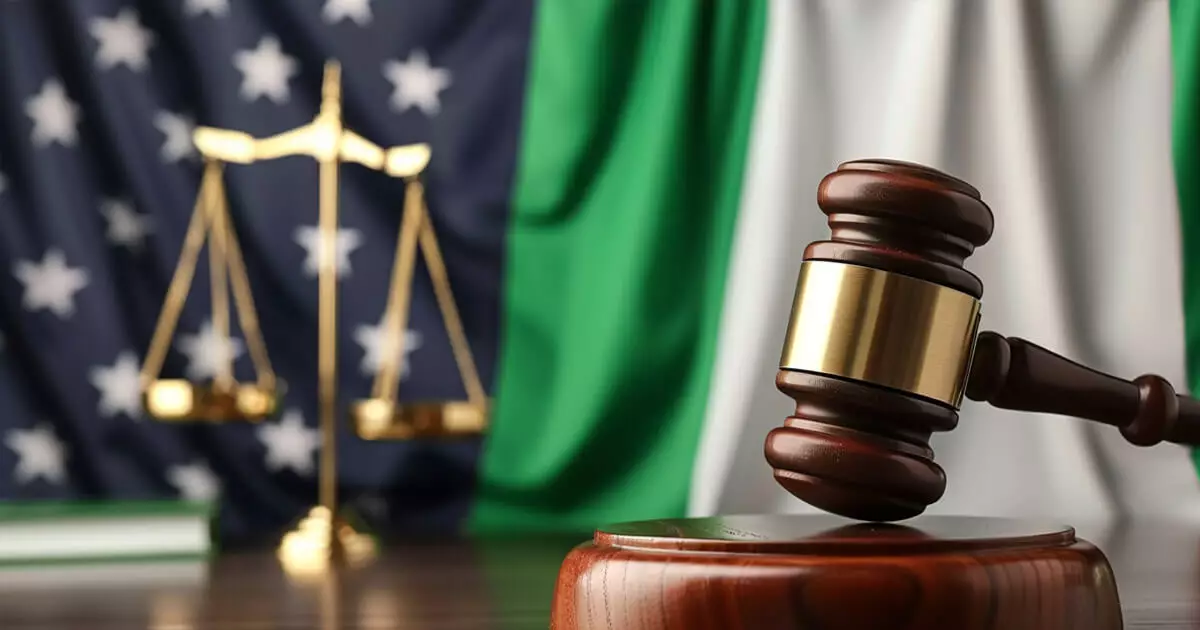In a bid to tackle the rising tide of cryptocurrency-related crimes and illicit financial activities, a significant step has been taken between the United States and Nigeria. Both nations have established a Bilateral Liaison Group, aiming to bolster collaboration in identifying, investigating, and prosecuting cybercrimes associated with digital currencies. This initiative, announced on October 23, underscores the United States’ commitment to reinforce Nigeria’s capabilities in the ever-evolving landscape of digital finance.
Nigeria has emerged as a key player in the global cryptocurrency arena, ranking as the second-largest crypto adopter worldwide, according to data presented by Chainalysis. This rise in adoption has positioned Nigeria at the forefront of digital finance within Sub-Saharan Africa, creating opportunities but also paving the way for potential misuse. Concurrently, the United States has led the North American market, propelled by significant institutional interest in Bitcoin and Ethereum, particularly surrounding ETF developments. As cryptocurrencies gain traction globally, the ability for rapid, cost-effective cross-border transactions becomes a double-edged sword, facilitating commerce while simultaneously inviting illicit activities.
The Challenge of Regulation in a Decentralized World
The decentralized and borderless nature of cryptocurrencies poses unique challenges for regulators and law enforcement agencies. While the overall illicit funds within the crypto ecosystem, as reported by TRM Labs, have drastically decreased, amounting to $34 billion in 2023—a 99% drop year-on-year—this figure still highlights the persistent challenge of controlling criminals’ access to these technologies. This has prompted the US and Nigeria, both witnessing substantial cryptocurrency adoption, to address the ramifications of such a shift in financial transactions.
Objectives and Strategies of the Bilateral Liaison Group
The newly formed Bilateral Liaison Group serves as a dedicated platform for intelligence sharing and coordinated efforts to disrupt networks involved in illegal finances. Its objectives are multifaceted: enhancing investigation capabilities, promoting regulatory cooperation, and fostering partnerships between the public and private sectors. By establishing clear regulatory frameworks and deploying advanced monitoring tools, the group aspires to empower law enforcement in both nations to efficiently track and investigate crypto-related criminal activities.
A critical component of this partnership involves educating Nigerian law enforcement on cryptocurrency-related issues while raising public awareness about potential risks and opportunities associated with digital assets. Through training programs and community outreach initiatives, the Bilateral Liaison Group aims to equip stakeholders with the necessary tools to understand and navigate the complexities of the crypto landscape.
The collaboration between the United States and Nigeria marks a pivotal moment in the global fight against crypto-related crime. If successful, this partnership could serve as a blueprint for similar collaborations between the US and other countries, fostering a more secure and regulated global crypto ecosystem. As the landscape of digital finance continues to evolve, such alliances will be critical in safeguarding against illicit activities while unlocking the potential of cryptocurrencies for legitimate economic growth.
















Leave a Reply